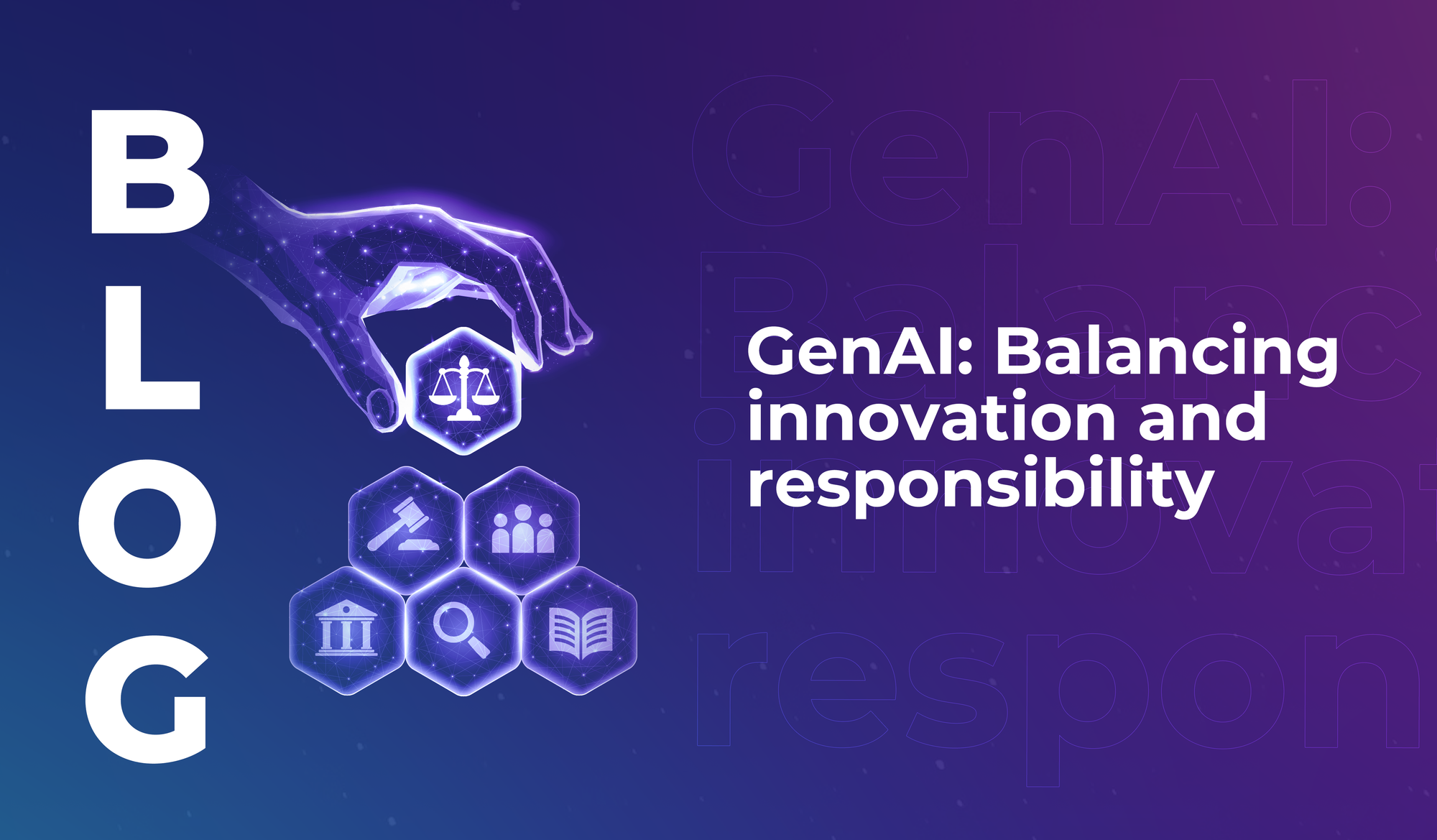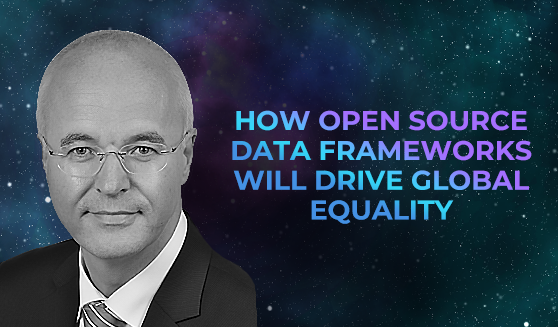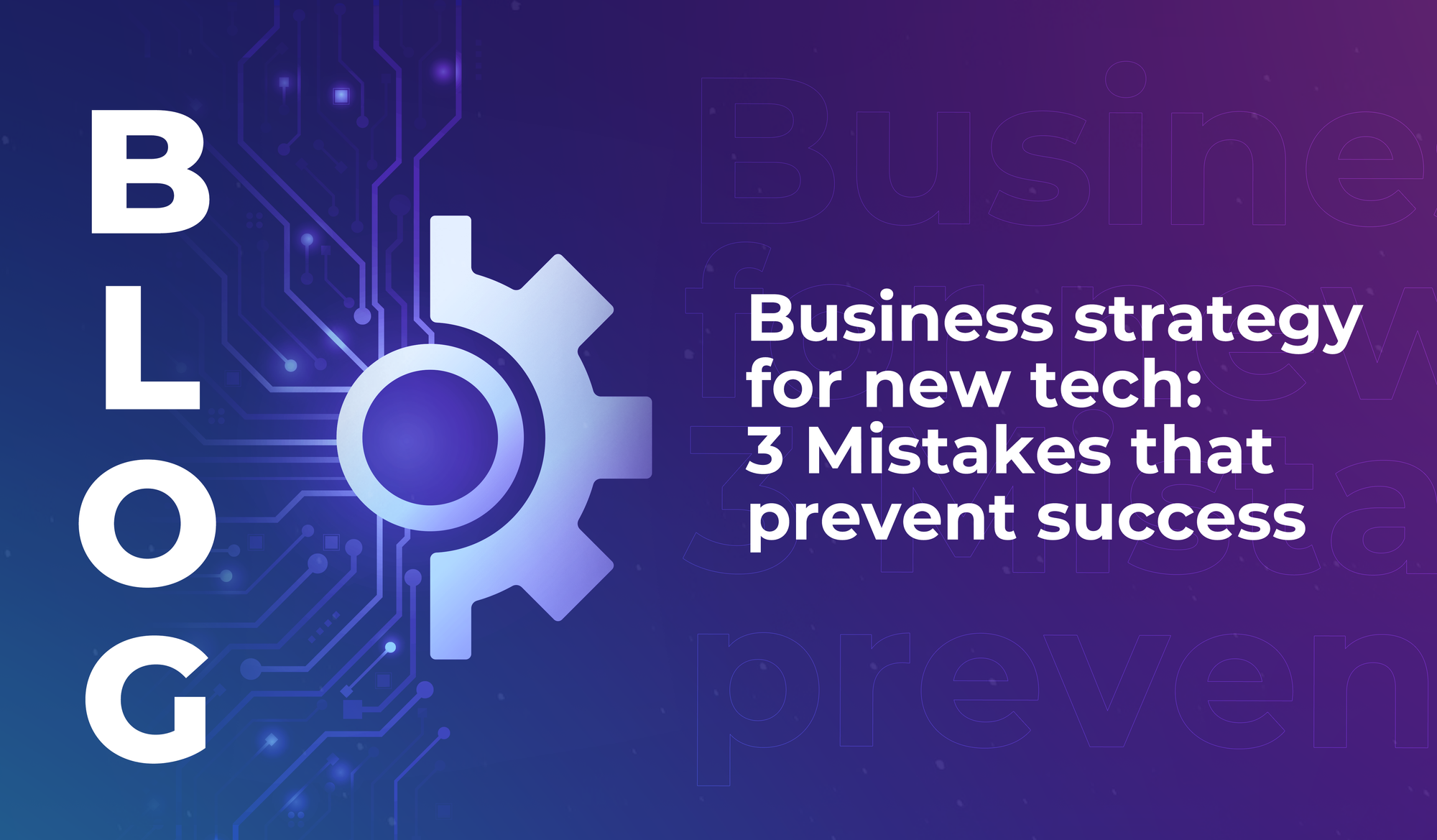
GenAI: Balancing innovation and responsibility
Have you ever wondered how artificial intelligence experts actually feel about AI? Read this.


We’ve written a love letter to data before. When it comes to the future of life-enhancing technology, good quality data is an essential foundation – which is exactly why we’re looking forward to hearing from #LEAP23 speaker Ulrich Ahle (CEO at FIWARE).
“For 2023 it is in the core of the activities of the FIWARE Foundation to shape the creation of data spaces in Europe,” Ahle told us in an interview.
Together with the European Commission, FIWARE has created the Data Spaces Support Centre to provide technology guidelines and building blocks that will enable interoperable data spaces on the continent. These data spaces will develop in parallel to the global adoption of FIWARE open source technology – for the development of smart cities, digital twins, and data spaces around the world. The FIWARE Foundation has over 550 members to date, including Al Madinah City, Atos, Red Hat, and Telefónica.
“During the last decade FIWARE has formed the main enablers to break down existing data silos and to avoid the creation of new ones,” Ahle noted.
NGSI-LD, the API that you export via the FIWARE Context Broker, is used to integrate platform components within a FIWARE platform, and it’s currently the formal standard data interface in Europe. Within its Smart Data Models program, FIWARE has developed more than 1,000 data models – all of which are providing “a common ontology for digital solutions.”
We asked Ahle why this is so important, and he said:
“Standard interfaces and standard data models are the key enablers for interoperable and replicable digital solutions based on FIWARE around the world and are the main levers to dramatically reduce the so-called ‘vendor lock-in effect’,” whereby the cost of switching to a different digital solution is so high that customers are stuck with their original vendor, unable to move to a new provider if they need to.
To illustrate this, Ahle told us about some of the projects FIWARE is particularly proud of right now:
“A set of standardised modules that are assembled to create sustainable and highly effective solutions for the digital transformation of cities and regions, in line with global industry standards and fully compatible with the Open Source Software Framework of FIWARE.
Using the FIWARE Context Broker, a core component that gathers context information from diverse sources (such as mobile apps, IoT devices, or social networking services) and that manages the complete lifecycle of this context information, the STF modules enable public administrations to ingest IoT data at any scale from multiple and interconnected sources as well as register all devices and sensors deployed in the city or region territory.
Thus, the unified technological platform solves one of the most challenging issues in the development of digital cities – it brings and saves context information from different sources into one data space.”
“The first city in the world to hold FIWARE’s Platinum Membership. The Madinah Smart City Program has developed the ‘Madinah Smart City Strategy’ as the first smart city strategy in Saudi Arabia, by engaging city departments, national government agencies, the private sector, and most importantly the citizens of the city. The strategy is human-centered, and utilises technology for support and not as an objective.
Raseel is the first smart city platform in Saudi Arabia. It is an interoperable, innovation enabled, and silo-free city platform, using FIWARE components such as Orion Context Broker, Cygnus, and STH-Comet as well as open source components supported by FIWARE: CKAN, Kong, and Keycloak.The platform’s smart solutions focus on facilitating the integration of city management into governmental departments, improving residents’ quality of life, enriching visitors’ experiences, guaranteeing low business entry cost for SMEs, and simplifying coding for developers.”
FIWARE’s activity within the Smart City sector is evident – with over 300 cities in 30+ countries currently using FIWARE tech to deploy their digitisation. And the adoption of FIWARE in other industries, including Smart Energy, Smart AgriFood and Smart Water is growing. But there’s a deeper process at work here – a social shift that can only happen through the interoperability of data resources, and collaboration between companies, industries, and countries.
From an outsider perspective, the development of data spaces might sound complicated; techy
It’s about making the world a more fair and equal place.
As Ahle put it, “We strongly believe in openness, meritocracy, empowerment and fairness when it comes to global collaboration. Joining forces to develop common software building blocks, interfaces and data models combined with reference architectures are the main results of the collaboration of the members of the FIWARE global ecosystem. All these results are available on GitHub, for free, for everyone, forever.”
Thanks to Ulrich Ahle at FIWARE Foundation. Join us at #LEAP23 to learn more.

Have you ever wondered how artificial intelligence experts actually feel about AI? Read this.

A tech business strategy expert shares the biggest mistakes that tech innovators make, and explains why an effective business model is more important than a cutting-edge product.

We ask Rodi Basso (CEO at E1 Series) to share his perspective on sports innovation and the rapid evolution of sports tech.

Have you ever wondered how artificial intelligence experts actually feel about AI? Read this.

A tech business strategy expert shares the biggest mistakes that tech innovators make, and explains why an effective business model is more important than a cutting-edge product.

We ask Rodi Basso (CEO at E1 Series) to share his perspective on sports innovation and the rapid evolution of sports tech.